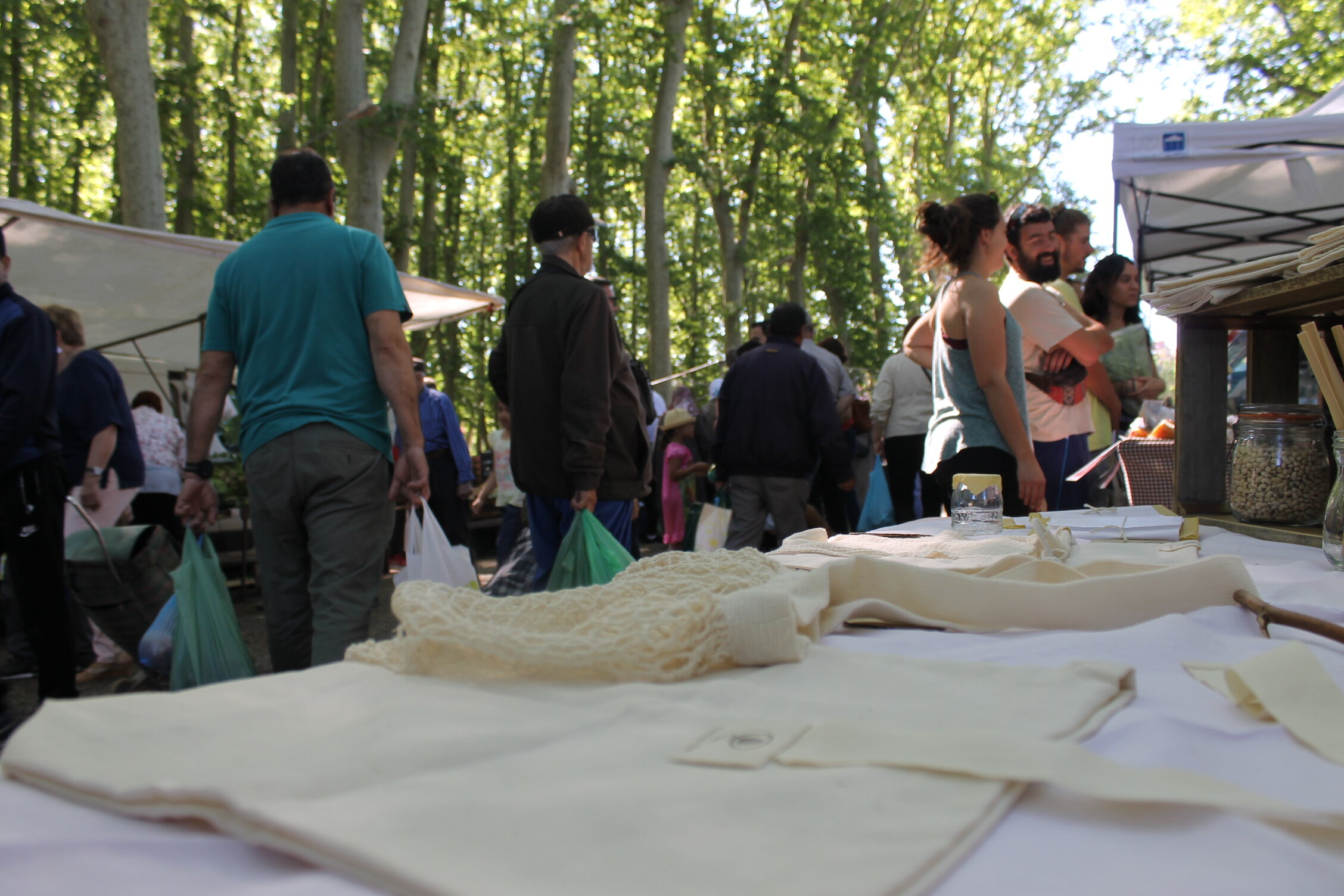Meet the founder of a sustainability, human rights focused enterprise.
Interview with Alba Bosch, the founder of Zero Residual
Meet Alba Bosch, the founder of Zero Residual, a Girona based enterprise giving people alternatives to single-use items. She is a human rights expert, her expertise has meant that her enterprise focuses on empowering vulnerable women through the production of her carefully designed, handmade products. In this chat, Alba explains to me what inspired her to create her enterprise, a little bit about the people who make the items and her choices when putting sustainability first.
Where did the idea come from and what was your inspiration?
The first time I experienced using alternative products (to single-use items) was in the Zero Waste house in Paris, my friend introduced me to the idea. There were tons of reusable alternatives that I didn’t even know existed and that was the moment that shocked me. I thought ‘well, now I know there are all these alternatives to my single-use products, I do not have any excuse not to change my consumption habits.’ I moved back to Spain after finishing my studies and it was then that this personal choice started to evolve into the enterprise. I noticed that these alternatives did not exist anywhere. So, I thought ‘well, if these do not exist I have to create an option for people, myself.’
How long did it take for the idea to turn into the enterprise?
It took about 6 months. Not only to conceive the idea and make the project coherent but also to give it the social aspect which was important to me. I also had to make the designs and to find suppliers, organic suppliers, that understood my vision. It took me quite some time to find the suppliers.
Who makes your bag products?
I connected with a local NGO who works with vulnerable women. From the beginning, they were very welcoming to the idea. I have spent time with the women, as I want to get to know them and to hear their stories. The organization is based in Banyoles (a local town) most of the women are from Northern Africa. Either they are low skilled workers or they have never had the opportunity to an education. They are working there and learning new skills, e.g. how to sew, and that gives them a regular salary and they also have a schedule which works for them, as most of them have young children, so it allows them to take care of their children and support themselves.
And what about the reusable wrap product?
We are also working with a group of women to produce the wraps. I am a human rights expert and my area within this is gender issues, so that is a personal choice. I contacted some other organisations and found a women’s shelter for gender violence survivors. It provides a setting where someone, who has just escaped from a violent relationship, a chance to rebuild their life. They can start getting into the labour market, little by little a few hours a week, it’s the first step towards an economic independence and building a sense of community.
How did you select the raw materials?
For me, what goes into the product is just as important as the way it is crafted. Lately, a lot of brands are making vegan wraps, so I thought if I could make them vegan then why not. They would have to be made from soy wax or from a paraffin based substance, but I did not want to use chemicals. I started looking into the option of soy – but soy is not grown in Europe, so I would have to have imported the product. I weighed up the pros and cons and made the conscious decision, that as I am an ecological enterprise, it is important to me to use products that are locally sourced. I decided on making them from bees wax from a near-by supplier. I also use pine resin which is from Spain.
What are the future plans for the enterprise?
The first future steps would be to find more selling platforms, now it is mainly online and generally by people who are already looking for alternative choices. I want the products to be as close to the consumer as possible. Also to launch more products, I’m looking at reusable sanitary pads. I have a list of things that I would love to launch.
What do you normally take with you in your bag?
I always have my reusable water bottle, this is the thing that I use the most. If I did not have it, that would be the area that I would consume the most plastic in. I always have a reusable bag for snacks or food, I carry my reusable straws (stainless steel) and at my office I have a china mug so I do not use the single use ones that come out with the machines. And a Tupperware, of course!
Are the consumers interested more in the environmental or social side, or both?
It is generally a bit of both. I think the social side had more of an impact with the bags. But the wraps were slightly different as bags are not such an innovative product people see ‘an ecologically made bag with a social impact’ which is great, but, the moment I launched the wraps I think people were reacting more to the ecological side. It was something that they had never seen and they were amazed by its reusable quality, it can take any shape. Of course, when they know the social story it creates a stronger impact.
Photographed by Melisa Gooding


